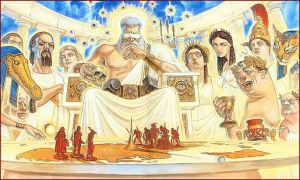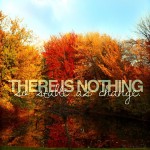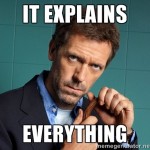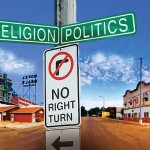You weary Nations,
perhaps I am some new being you’ve never encountered before.
Yet there is nothing about me you can’t recognize.
I live in the place where you perceive nothing.
Look again!
— Geoff Bartley, “The Language of Stones”
Recently, P. Sufenas Virius Lupus published an essay at Patheos entitled “Bringing Back the Gods”. There’s a lot worth discussing there, but I want to address now a part of his post about the difference between Polytheistic worship and “nature worship”. Lupus writes:
“Pagan or polytheist practice that emphasizes cultus presupposes a definite being with volition and consciousness on the other end of the interaction. (Cultus, for the present purpose, is active and deliberate interaction with divine beings.) Thus, when I hear Pagans being described or self-defining as “nature worshippers,” I wonder how interaction can take place at all. “Nature” doesn’t care if you make offerings, hold festivals, or sing its praises and dance and feast with your friends. Dancing at Lughnasadh will not avert global warming; singing a hymn won’t stop an earthquake; pouring a libation won’t prevent it from raining. The best way to “honor” nature is to do things like recycle, not drive, reduce one’s carbon footprint, and so forth.
“But, if one (for good or ill, depending on who one asks) personifies nature to some extent as genii loci, land wights, and other spirits of nature and place, then one can usefully interact with these things even if it still might rain, have earthquakes, or get warmer. The more ecologically-conscious one’s religiosity is, the more scientifically-informed it tends to be; and if that’s the case, then the utter irrelevance of “nature worship” in any cultic fashion should become all the more obvious. Nature—and the wider cosmos more generally, with its colliding asteroids and exploding stars—is utterly indifferent to human existence at this stage, and likely will be so forever.”
And then in a comment to “Lupa’s” post on Pagan fundamentalism, Lupus wrote:
“I have no problem with animism, animatism, pantheism, or panentheism, and in fact I’ve done and can be accused of having done or subscribed to one or more of those viewpoints for much of my life, and in the present as well. However, even for hardcore and dedicated animists, pantheists, and others, I’ve heard the argument that it is impossible to have a meaningful spiritual relationship with an aluminum can because “it has no spirit”…and that’s exactly the point I was trying to make in my comments in the column. Even if one is an animist or a pantheist (etc.), there has to be “something” there to relate with in nature generally, or each smaller aspect of it (a river, a tree, a rock, a region, etc.), or else there’s no point in doing dances, making offerings, and so forth. Whether it is one great spirit of nature, or many smallers ones, or the totems of tree or plant or animal species, or the individual spirits of any tree or animal or plant, or however one wants to discuss it, there is something there beyond what is strictly physical and what can be proven by science. The hurricane may still knock your house over, or the earthquake, or the bear attack you, or the deer eat all of your flowers, but the relationship one has with the spirits of these things might keep one in better balance in relation to all of those calamities despite the cognitive dissonance of one’s physical situation being vastly different. Nature and the cosmos more broadly, simply as it is and as it can be grasped via science, is totally indifferent to humans and our activities (which is why the vocabulary around global warming is so flawed–it’s not that “there won’t be a planet earth” if it gets six degrees [warmer], it’s just that natural processes will edit human survival out of the picture; and many other examples could be enumerated). There is some amount of belief that is required in “something more” to all of this if animism, pantheism, and all of the other things that are being suggested as “more reasonable” alternatives to polytheism are to be viable. Making prayers and offerings to a spirit of nature that doesn’t care about humans and is indifferent to us–which is the model science provides–is as useful as making offerings to the blind idiot god Azathoth. In this regard, I don’t see there being a huge difference between polytheism, animism, pantheism, and so forth, because all of them have a spiritual force in them that is outside of the individual person (though the person may partake of a similar nature or some degree of connection with that force) with which one can relate if they so choose.
I think Lupus is both right and wrong. He’s right that nature does not “care” about humans — at least not individual humans, and not for the species either — at least not over and above any other species. And he’s right that offerings to earth and singing the praises of nature do not avert catastrophe or bring down the blessings of Providence.
But I think Lupus is wrong that nature is indifferent to us. And he is wrong that nature worship is pointless.
I don’t know who the “blind idiot god Azathoth is” that Lupus refers to (oh, I just looked it up: it’s Lovecraftian), but Lupus’ reference to him reminded me of Terry Pratchett’s Blind Io, who is the head of the pantheon of gods in his humorous fantasy Discworld series:
On this particular day Blind Io, by dint of constant vigilance the chief of the gods, sat with his chin in his hand and looked at the gaming board on the red marble table in front of him. Blind Io got his name because, where his eye sockets should have been, there were nothing but two areas of blank skin. His eyes, of which he had an impressively large number, led a semi-independent life of their own. Several were currently hovering above the table.

Blind Io is blind, but he’s not. In fact, he sees everything. That’s my Goddess too. She is blind — in the way that Lady Justice is blind — having no favorites: neither sports teams, nor combatants in war, neither saints, nor sinners, neither little children, nor parasitic wasps.

At the same time, my Goddess sees everything. As the Christians say, “not a sparrow falls …” But my Pagan Goddess sees all, not because she sits on some Archimedean point beyond all this, but because we are all her eyes. She sees through us (and through other animals and every other feeling being). I think this is what Augustine meant when he said, “God is closer to you than you are to yourself.” As a Jungian Pagan, I would say that we are the consciousness of the Goddess. People sometimes wonder if we are God’s dream. Jung would probably say, rather, that we are God waking from his dream.
Lupus wonders how interaction with such a God is possible. I wonder how one could avoid interacting with such a God. Every breath you take is an interaction with the Goddess. God shapes us. And we shape God. Through everything we touch. As Octavia Butler writes: We are God’s victim, God’s prey, but …
A victim of God may,
Through learning adaption,
Become a partner of God.
A victim of God may,
Through forethought and planning,
Become a shaper of God.
Lupus points out rightly that dancing the Wheel of the Year does not avert global warming — no more than the Aztec sacrifices raised the sun each day. But then, I wonder, is praying to Lupus’ Polytheistic gods any different? Can Lupus’ gods save me from disaster? Lupus admits that the hurricane will still come and the bear will still eat you if you pray to his gods, but that praying will keep you in better balance when these calamities happen. I would say the same thing about praying to my Goddess. It’s not the wheel of nature’s seasons that I turn with my ritual dance, but the wheel of the seasons within me.
Lupus insists that, to enter into relationship with the natural world, there must be “something more” there, “something beyond what is strictly physical and what can be proven by science.” And I agree. I would say the same thing about human beings, though. I can reduce my matter to a buck’s worth of chemical compounds … but you can’t relate to that. You can relate to me, because there is “something more” there. Is that something more spirit? As a philosophical naturalist, I have to say “no” — but that does not mean that I believe a reductionist account of the universe is a complete one. The whole is greater than the sum of its parts.
But how can one relate to inanimate nature? Lupus insists we need to personify nature in order to relate to it. An online discussion with Rua Lupa a while back convinced me of the pitfalls of personifying nature: namely that, rather than really seeing what is there, we project our own image onto nature. Projection is something that I should be aware of as a Jungian, as much as a philosophical naturalist. I’m cool with personification, as a tool to connect with nature, but only after we have really seen what is there.
I agree with Lupus that there is “something more” there, but I would not call it “spirit”. I think it is a mistake to abandon the physical just because science has not adequately explained its emergent properties. For me, my Paganism is a search for “the beyond in the midst of life” (Bonhoeffer). In the words of Paul Eluard, “There is another world, but it is in this one.” I think seeing this world, really seeing it, takes an great deal of patience and effort — and even luck. This is something that reading Annie Dillard taught me: the importance of seeing. It’s so hard to “unpeach the peaches”, as she says. When I look at a tree, I no longer see that tree, but my idea of a tree. I fill in the gaps with my ideas of what a tree should look like. It takes an artist to really see. Jung relates a story, near the end of his “autobiography”:
There is a fine old story about a student who came to a rabbi and said, “In the olden days there were men who saw the face of God. Why don’t they any more?” The rabbi replied, “Because nowadays no one can stoop so low.” One must stoop a little in order to fetch water from the stream.
“Stooping low enough to see the face of God” — that is what Paganism means to me.
Perhaps “worship” is the wrong word, though. Octavia Butler writes:
We do not worship God.
We perceive and attend God.
We learn from God.
With forethought and work,
We shape God.
In the end, we yield to God.
But, speaking for myself, I do worship the Goddess that is the world. I worship nature. There is definite element of devotion in my practice. I ask: Is not this world worthy of love?
And were an epitaph to be my story, …
I would have written of me on my stone:
I had a lover’s quarrel with the world.
So yes, I worship nature. I worship a blind Goddess. For me, she is the only worthy object of worship. She will never care that I worship her. She will never answer a single prayer. But she is always with me … shaping me as I shape her. I will struggle with her “to the last gasp of my earthquake life” (Melville). And in the end, in my final act of devotion, I will yield to her.















